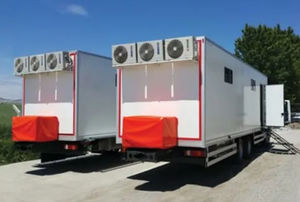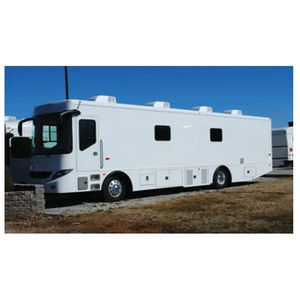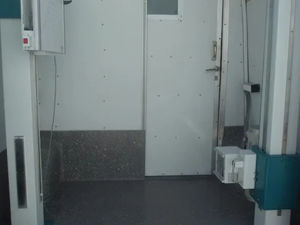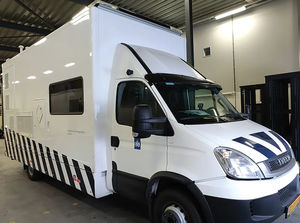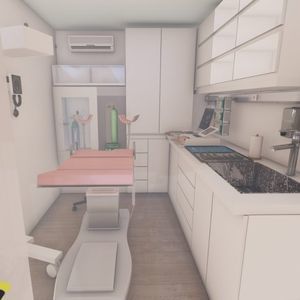
- Primary care
- Emergency medicine, Resuscitation
- Emergency mobile health vehicle
- ICU AUTOMOTIVE IMPORT EXPORT AND CONSULTING.
- Products
- Catalogs
- News & Trends
- Exhibitions
Emergency mobile health vehicle intensive carelaboratorymedical imaging
Add to favorites
Compare this product
Characteristics
- Applications
- laboratory, emergency, intensive care, medical imaging
- Configuration
- container
- Motor type
- diesel
- Transmission
- automatic, manual
- Tare weight
25,950 lb
(11,771 kg)
Description
Mobile hospital is a self-contained medical facility designed to provide health care services in remote locations or disaster zones. Mobile hospitals are portable structures that can be rapidly deployed to provide emergency medical assistance when access to permanent hospitals and clinics is limited.
The primary purpose of mobile hospitals is to bring medical care directly to populations in need. They allow doctors, nurses, and other health workers to set up functional medical facilities in areas impacted by natural disasters, disease outbreaks, refugee crises, and conflict zones. Mobile hospitals aim to fill healthcare gaps and save lives by offering essential medical services on-site during emergencies and humanitarian crises.
Mobile hospitals are equipped with many of the same diagnostic and treatment capabilities found in standard hospitals and clinics. However, they are engineered for mobility, with components designed to be set up or broken down quickly as needs shift in the field. When not actively deployed, mobile hospitals can be stored and maintained for rapid activation when disasters strike.
Key Features
Some key features of mobile hospitals include:
Improved access to healthcare, especially preventive services, in underserved communities
Ability to quickly deploy medical resources where existing infrastructure is damaged or overwhelmed
Flexibility to relocate based on changing healthcare needs and outbreaks
Lower capital costs compared to building permanent hospitals and clinics
High-quality care delivered by skilled medical teams with the latest technology and equipment
Catalogs
No catalogs are available for this product.
See all of ICU AUTOMOTIVE IMPORT EXPORT AND CONSULTING.‘s catalogsOther ICU AUTOMOTIVE IMPORT EXPORT AND CONSULTING. products
Mobile Health Vehicles
Related Searches
- Stretcher
- First response vehicle
- Non-invasive ventilator
- Emergency stretcher
- Van first response vehicle
- Foldable stretcher
- Mobile health vehicle
- Portable ventilator
- CPAP ventilator
- Emergency ventilator
- Transport ventilator
- Truck mobile health vehicle
- Ambulance with oxygen cylinder
- Box body ambulance
- Stretcher on casters
- Compact ventilator
- Type A ambulance
- Type B ambulance
- Off-road ambulance
- Diesel ambulance
*Prices are pre-tax. They exclude delivery charges and customs duties and do not include additional charges for installation or activation options. Prices are indicative only and may vary by country, with changes to the cost of raw materials and exchange rates.


